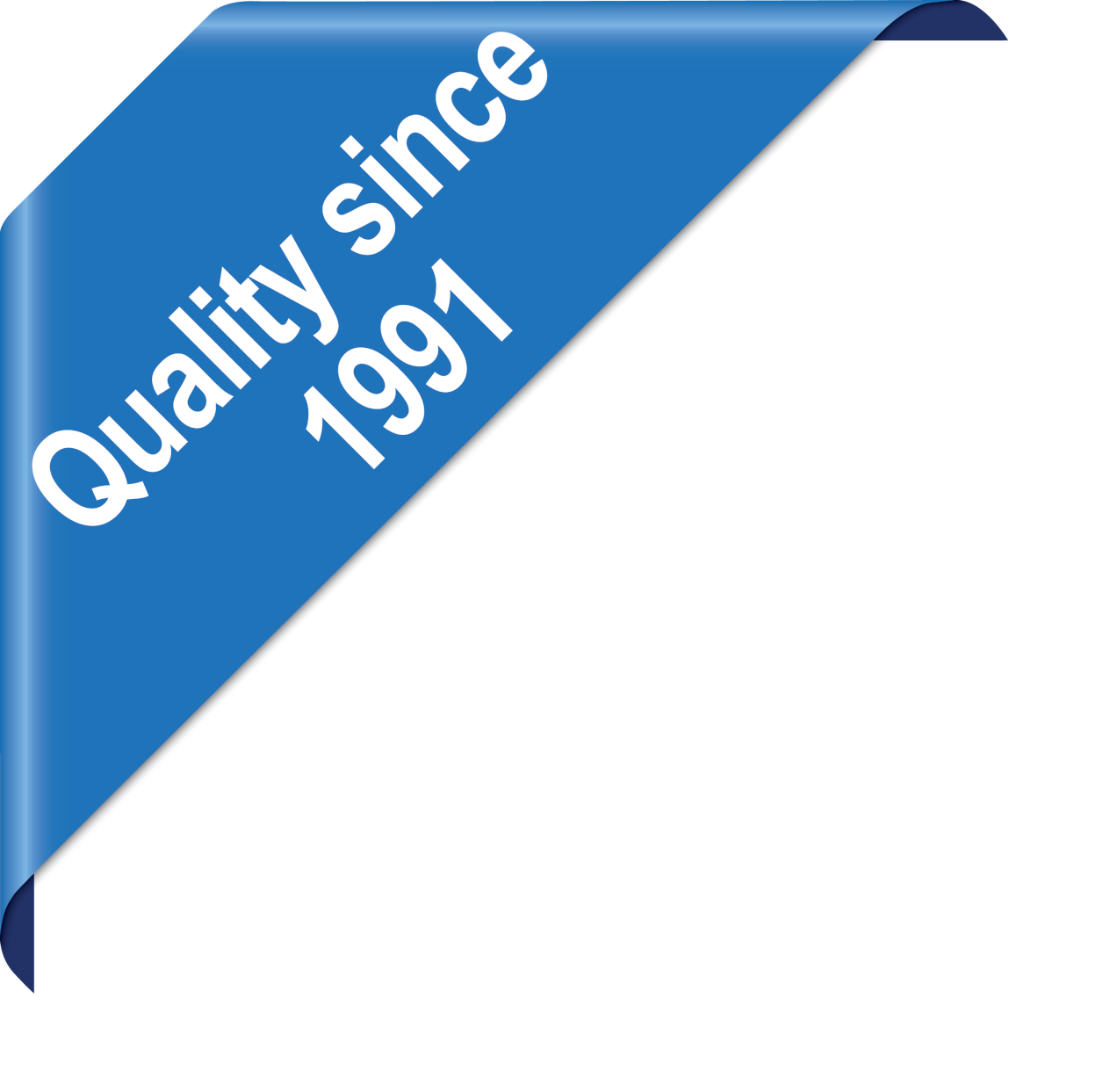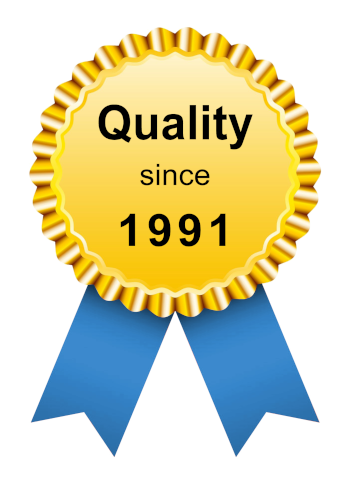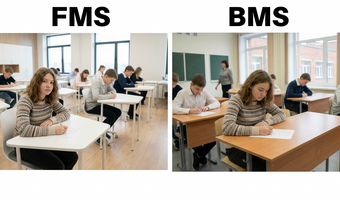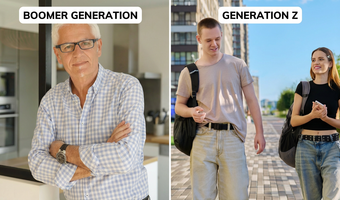


Education is closely related to the personality of a person
Is it really worth acquiring knowledge? Will I become a better person if I am willing to see the world in a differentiated way? Can I use my knowledge according to my ideas?
All these questions can be answered with a resounding "yes". A good education is the most important element in the development of a human being! Learning and experiencing - and thus acquiring knowledge - is the basis of education. So the conclusion is: With learning, I experience. From the experienced, I formed knowledge.
Without education, there would be no exploration of new ideas, and without new ideas, there would be no creativity. And without creativity there would be no development, be it one's own or that of science, of a new technology or even that of a country.
If we briefly describe the benefits of education, these are the most important ones:
- Education is an important factor for a better life.
- Without education, no one is free.
- With a good education, you get better social interaction and not the least etiquette.
Find out more about Gymnasium preparation now!
Thanks to education we recognize connections
Education allows us to connect different information we gather and interpret it based on our own life situations. Formal education is a way to gain knowledge, but interaction with people and the quality of remaining critical and at the moment allows for application and personal growth, which creates a person capable of reflection. Insights are only useful if they help us better understand our own reality or that of others. This is most important to be able to accept people who are different from us and in unfamiliar situations.
Children learn already in their first years of life! The first group's experiences in terms of education then begin in kindergarten. There, children come into contact with other lifestyles, cultures, and values for the first time. They learn to express interests and feelings, recognize conflicts, and resolve them. These social relationships are elementary prerequisites of any educational process and preparation for school. Education thus has several purposes. On the one hand, it should build knowledge, but on the other hand, it should also train social skills.
The school has the task of educating students. First, the basics are taught: German, mathematics, English, and basic knowledge of other sciences. In the higher classes, differentiation takes place. There is still teaching about the Investiture Controversy in medieval Europe, but are political systems and their impact on our lives and the interrelationships in the national economy understood or taught at all? This raises the question of what kind of education a person needs in order to be well-prepared for life.
IB Baccalaureate - Study Abroad
The International Baccalaureate Diploma (IB) is an internationally recognized gymnasium diploma. The IB is awarded by the «International Baccalaureate Organization (IBO)» awarded in Geneva. It is a two-year educational program aimed at 16- to 19-year-old students in 140 countries worldwide who wish to complete their Matura abroad. It is a flexible as well as strength-based solution to acquire the right to access a university in Switzerland also worldwide. Six subjects from different subject areas have to be chosen. Critical and international thinking is to be stimulated, for example by having to complete specialized papers as well as the course "Theory of Knowledge".
This way of completing the Matura is particularly recommended, as the horizon is greatly expanded. In addition, students study in the language of their chosen country and encounter a multicultural environment. A challenge that demands a lot from the students and requires a certain will to integrate as well as an acceptance of other cultures.
How does it behave now with the training?
Education is generally understood as an end in itself and is associated with gymnasium and university. Training, on the other hand, has an expectation of utility, i.e., learning a profession and its practical requirements.
"Vocational training" should not be limited to narrow technical knowledge, but should be based on the idea of a comprehensive professional ethos. Not only knowledge and practical skills are promoted, but also cognitive ones. Traditionally, the term "education" refers to qualification for a profession. Thus, further learning - after basic education - qualifies for entry into the chosen profession. Later, the habits of the profession are also adopted, as well as its identity.
A veterinarian who decides on a specialty after completing the state examination can do an internship for the purpose of further professional training and carry this out in veterinary practices that specialize in horses, for example.
An apprentice decides on an apprenticeship and starts in a training company. His or her further vocational training takes place in a corresponding vocational school through learning processes that cross over learning. This is called dual training.
Find out more about BMS preparation now
How do young people think about their vocational training and future?
People are shaped by their environment, which leads to characteristic patterns in their personalities. These include political and historical events, as well as the cultural environment and the state of technology. This is true for adults, but even more so for adolescents, since they are still in the imprinting phase.
The two youngest generations – Generation Y and Generation Z – show clear differences in their ways of thinking. Generation Y is attributed to the period from the early 1980s to the late 1990s. Generation Z includes those born between 1997 and 2012.
Generation Y had a hard time planning for their future careers. It was not easy to find an apprenticeship or a job. This was followed by an economic boom, the euro crisis, and high unemployment. The result was that many young people were striving for the highest possible school and university education.
The Worldview of Generation Z was strongly influenced by the Internet, smartphones, tablets, and What's App. Social networks and digital work - all this was part of life for Generation Z from an early age and has naturally left their mark. And the Corona crisis has and will continue to influence this generation. As far as career goals are concerned, the desire to enjoy one's job is clearly the top priority. It should also correspond to inclinations and abilities. Professional development also plays a role, as does crisis security. If with Generation Y there was still a desire for more co-decision-making in work processes, with Generation Z it's the feedback that can't come fast enough. This is a characteristic of this generation and can become a real challenge for employers. Members of this generation are "digital natives" and are used to getting immediate feedback, whether through Facebook or What's App & Co.
However, it is also becoming clear that more emphasis is being placed on a healthy work-life balance. The family is once again coming to the fore. As a result of the Corona crisis, working digitally from a desk at home is also increasingly becoming an ecological alternative, as far as the job allows.
Last but not least
«Education is the stimulation of all human powers so that they develop through the appropriation of the world and lead to a self-determining individuality and personality.»
This wisdom comes from Alexander von Humboldt. And he should know. He was considered to have a low ability, an unwillingness to learn, never attended school and was taught by home tutors. Humboldt was in competition with his older brother Wilhelm, who - in contrast to Alexander - effortlessly completed the abstractly prepared learning material. And yet, from his earliest youth, Alexander showed special talents, which he used in his own way to broaden his profiled horizon more and more. Today, almost everyone knows who Alexander von Humboldt is, but does anyone still speak of Wilhelm? Even Goethe was fascinated by Alexander's horizon of knowledge.
Conclusion: Even if you can take everything from a person, you cannot take two things from him: His character and his intellectual education.
Start your grammar school preparation course now!
Is simultaneous registration for FMS and BMS exams possible?
Is it possible to register for FMS and BMS at the same time; is it still possible to register for the short-term grammar school exam and which exams are easier.
Value shift: Boomers vs. Gen Z: Workaholics vs Leisure fans
Boomers vs Gen Z: While boomers tend to workaholics on verge of burnout, Generation Z prefers meaningful work and leisure time; we explain this value shift.
Second-chance education, university: financially worthwhile?
Is a second education financially worthwhile, i.e. via adult grammar school graduation to university, in order to become a lawyer or doctor in your mid-30s?



